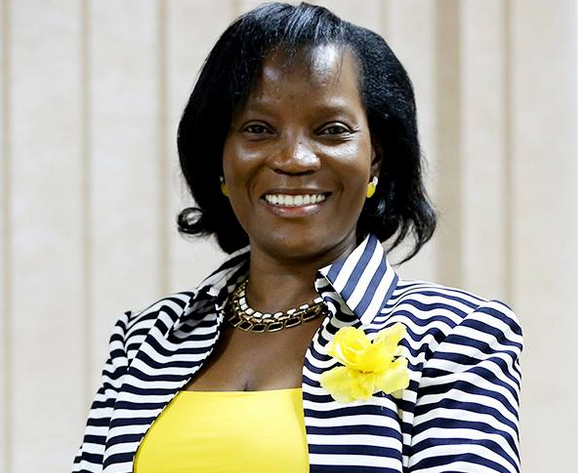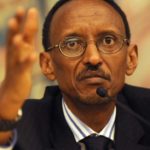The profile of the Executive Director of Kampala Capital City Authority (KCCA), Dr.Jennifer Musisi continues to rise, and latest information is that she will be one of the keynote speakers at the 2018 Mo Ibrahim Forum in Kigali next weekend.
Over 10 prominent African nationals are expected to deliver speeches at the forum including Rwandan President Paul Kagame, who is the current Chairman of the African Union (AU).
Donald Kaberuka, Chairman and Managing Partner Southbridge Partners, former President, African Development Bank is also expected to speak at the forum.
For the first time, the Forum will be preceded on Friday 27 by a ‘Next Generation Forum’ where the young people will discuss as citizens what they expect from their public services, and as potential jobseekers the attractiveness, or lack of, of civil service, at national, local or regional level.
Dr Jennifer Musisi and other presenters will discuss the 2018 Ibrahim Forum Report released this week by the MO Ibrahim Foundation, based in London.
The Forum will focus on Public Service in Africa: its key relation to good governance and effective leadership, new challenges and current shortcomings, and the ways and means to strengthen it and make it appealing to the next generation.
Mo Ibrahim, Chair of the Mo Ibrahim Foundation says public service is the pillar of governance. “Without strong public services and committed public servants, there will be no efficient delivery of expected public goods and services, nor implementation of any commitment, however strongly voiced,” he says.
The debates will be moderated by Nancy Kacungira, Presenter, BBC News, and Ngaire Woods, Dean, Blavatnik School of Government, Oxford University
The 2018 Report first looks at the demand addressed to African public services, pointing at growing expectations from citizens. New demands stem from the 21st century’s multiple challenges and Africa’s specific young and urbanising demography: solidarity, protection against various criminal threats, jobs, business enabling environment, culture, climate change mitigation, rural sector development. These pile up on traditional demands – safety and security, health, education, justice – for which citizens’ dissatisfaction appears growing.
An additional load is the multiplication of multilateral commitments: SDGs, AU’s 2063 Agenda. Many actors could be responsible for all these, within the public sector – African Union, Regional communities, national governments, cities, or outside of it – private sector, multilateral donors. This calls for a careful assessment of who is best positioned to address these demands and who has to pay for the delivery, the report says.
The Report further assesses the current state of African public services and their key challenges, both from the job attractiveness side and from the delivery side. On average, African public services display a continent-wide lack of capacity. They remain a relatively small employer, at a cost higher than in other regions, with large country disparities.
In health, education and security, public supply is far from answering the demand. Partly to answer the exponential demand, partly to substitute failing public supply, a growing range of non-state actors have become key providers of public goods and services, to an extent that may have sometimes prevented national governments from owning public policies, the report say. “Public employees in Africa are on average better educated than in the private sector and are also twice older on average than the population they serve,” it reads.
The report notes that job motivation is mainly about job security rather than wages, mobility within or outside public service is almost non- existent, political dependence is strong, working equipment is scarce, corruption is among the highest at global level, “ghost public servants” populate many services, while too many of the best-trained choose to work abroad.
The report notes that building public services in post-conflict settings, often from scratch, represents a specific challenge. But on a young continent whose ability to leap-frog has been often displayed, potential solutions and best practices exist: monetary and non-monetary incentives, internal and external mobility, capacity building, new technologies…
Concluding, the Report highlights the need to build a sound contract between citizens and public service providers. Trust being key to any sound deal, transparency and accountability need to be ensured, and commitments implemented.
On a continent where external financial flows are still equivalent to almost half of domestic tax revenues, where tax revenues only amount to less than 15% GDP on average, and where a majority of citizens are in favour of paying for their public services, strengthening tax collection is a key path to autonomy and ownership.
Report Highlights:
- Only three countries – Libya, Mauritius and Tunisia, have at least one doctor per 1,000 people
- Filling the void left by public services, private security, private education, and private health are rising exponentially, with the risk of widening inequalities on the continent
- DRC and Kenya have some of the smallest police force rates globally, with around 100 officers per 100,000 people
- Cairo’s population is larger than each of the 36 least populous countries on the continent
- Five out of the ten African countries with the largest public health expenditures as a % of total government expenditure are also among the ten countries with the highest share of external financing of their total health expenditure
- 30% to 50% of Africa’s total tax liability remains uncollected
- The average size of the informal sector in sub-Saharan Africa is estimated at 42% of gross national income, reaching 60% in Nigeria, Tanzania and Zimbabwe
- Sub-Saharan Africa, the average for private health expenditure is 57.4%, more than twice the level of Europe & Central Asia
- In Nigeria, roughly 82.3 million bribes were paid in 2016, equivalent to 39% of the combined federal and state education budget
- Mauritius is the only country where civil servants are appointed and evaluated entirely based on professional criteria, according to Global Integrity
- Africa loses around $2.0 billion annually through brain drain in the health sector
- 22% of Africa’s population who had contact with a public service in 2015 said they paid a bribe, mostly to the police and the courts
- Ghana is the only country where civil servants operate entirely freely without political interference, according to Global Integrity
- In e-government, Africa lags far behind the global average In Rwanda, the delivery time of an emergency blood supply with drones is reduced to 30 minutes from three hours by road
- Many Indices point to a low and decreasing level of open government practices in Africa
- Over the past decade, the African average for the Accountability of Public Officials has deteriorated, with the pace of decline worsening over the last five years
- A majority of African citizens are in favour of paying for public services
- Only seven African countries have a complete birth registration system
- In Rwanda, the delivery time of an emergency blood supply with drones is reduced to 30 minutes from three hours by road








